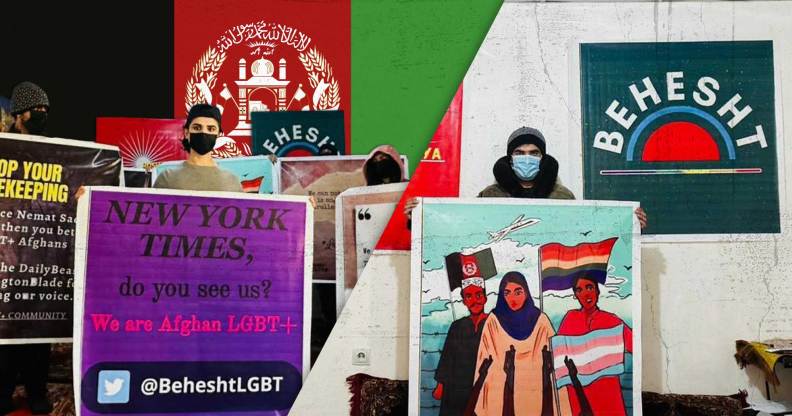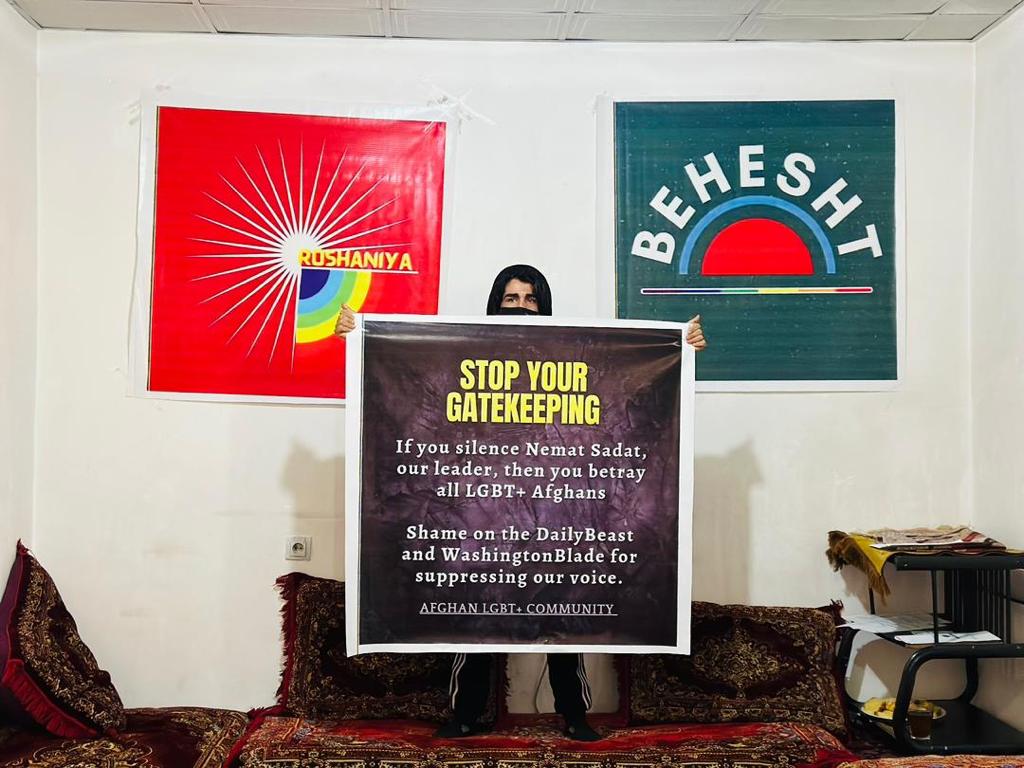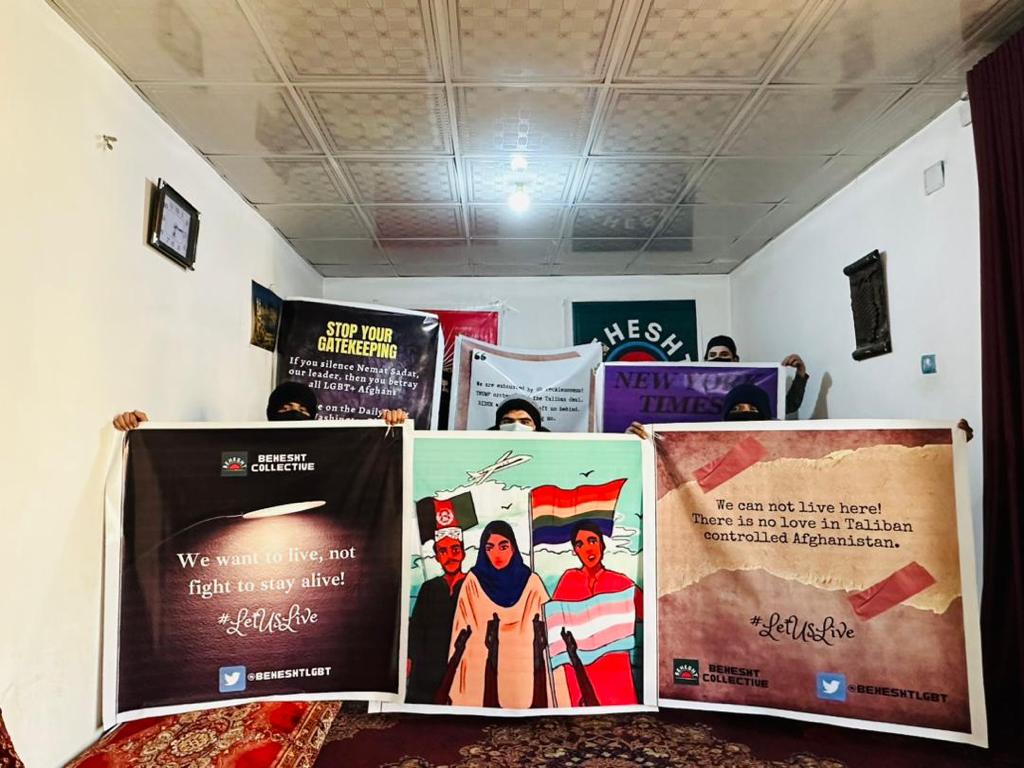Brave Afghans risk their lives to stage powerful LGBTQ+ protest ‘under the noses of the Taliban’

Members of the Behesht Collective, a group of LGBTQ+ Afghans, staged a protest in a private residence in Kabul, Afghanistan. (Supplied)
LGBTQ+ activists have staged a defiant protest in Afghanistan to draw attention to the United States’ failure to offer protection from the Taliban.
At a private residence on Wednesday (1 February) in the country’s capital Kabul, around a dozen Afghan people from the Behesht Collective, an LGBTQ+ group, congregated to show the world that their lives are still in jeopardy.
Since the Taliban seized power in August 2021, reports have circulated of LGBTQ+ people being beaten, raped and even murdered in Afghanistan.
It’s a dire situation, but finding a route to safety isn’t always easy – numerous western governments have introduced policies making it harder for people to claim asylum in recent years, meaning many can’t access the support they need.
While countries like Canada have offered specific schemes for LGBTQ+ Afghans, others have yet to recognise the danger queer people face under Taliban rule.
Qadamshah, one of the LGBTQ+ people who took part in Wednesday’s protest, is now calling on the world to sit up and pay attention to what is happening to the country’s queer community.

“This is a regime that doesn’t believe in LGBTQ+ rights, human rights and the rights of women,” Qadamshah, who previously worked in a senior state security role before the Taliban takeover, tells PinkNews.
“We decided to stage this protest because the USA and western countries left us alone here.”
LGBTQ+ people living in hiding in Afghanistan
Immediately after the protest in Kabul, Qadamshah and others involved fled to a neighbouring country to protect themselves from the Taliban – but there’s still a long path to safety.
The country they’re now residing in is a Muslim country where same-sex sexual relations are criminalised – but as Qadamshah says, it’s still better than Afghanistan.
“In Afghanistan, if they know that you are LGBT they punish you, they beat you, they arrest you. They even kill LGBT people… You are hiding everywhere.”
As the Taliban continues to wage war on LGBTQ+ Afghans, Qadamshah is pleading with governments in western countries to help them – to give them the chance to live their lives free from the threat of violence or persecution.

“My last message is that the world, the USA and western countries should help LGBT Afghans to flee because they are in a very bad situation here.”
Nemat Sadat, a gay Afghan who’s working to evacuate LGBTQ+ Afghans, says Wednesday’s private protest is signifiant because it took place “under the noses of the Taliban”.
“They are speaking for themselves and the hundreds of thousands of LGBTQI+ Afghans who have no future under Taliban-rule in Afghanistan,” Sadat tells PinkNews.
Like many LGBTQ+ Afghans, Sadat has been left disappointed by the response from the United States. He says the government hasn’t done enough to protect vulnerable people put in harm’s way by the Taliban takeover.
“The facts are as clear as day: the US did nothing for LGBTQI+ Afghans during the 20 years of US occupation in Afghanistan and continues to turn a blind eye to the savagery committed by the Taliban.
“Unless the US reverses course and proactively works with the Behesht Collective and Roshaniya, we will witness the total annihilation of the LGBTQI+ community in Afghanistan.”

